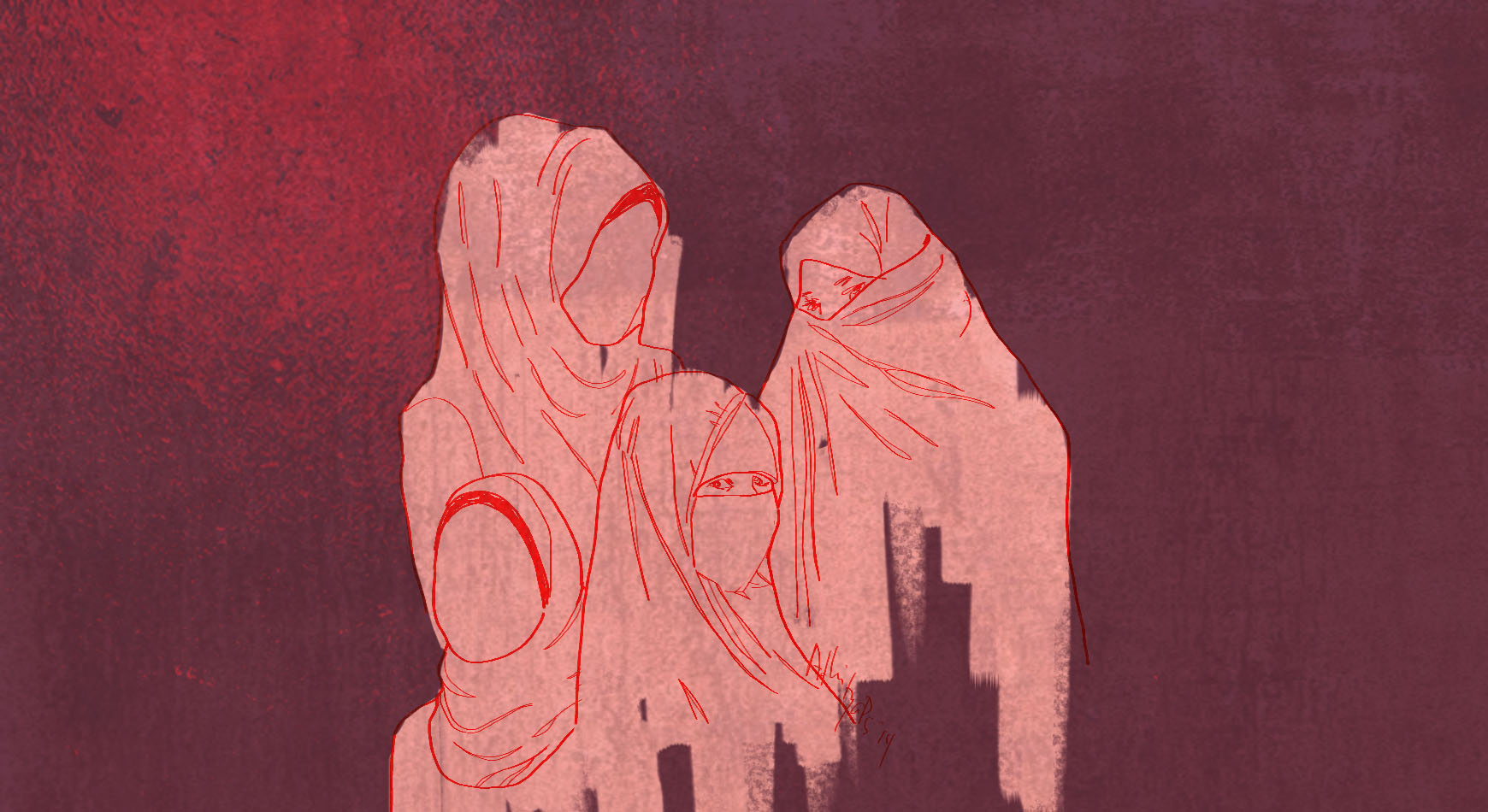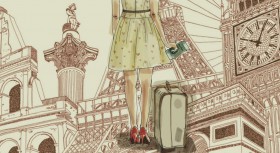It was the end of winter 2011 when I sat in a room in Bibliotheek Openbare Amsterdam, listening carefully to my teacher Lisa, a Jewish New Yorker who taught anything related to writing in the heart of Amsterdam city. It was chilly in the room; a few times I had to move my legs wrapped in thick socks and boots in seek of warmth.
There were 10 people in the room from various countries and I was the only Indonesian in the class. I was also the only one who wore a headscarf. It was a soft jade colored scarf that matched my long sleeve batik shirt and black pants, a combination that caught the attentions of some of my classmates.
One of these classmates was Mariann, a fellow from the US who sat beside me. Mariann started to ask me some questions during discussion session. She had been astonished to see me, the first Muslim woman she ever met in person. She admitted that coming from a country that had declared a war against Islamic terrorism, it would be easy for her to make ignorant stereotypes. I was considered dangerous simply because I covered my head.
I smiled and answered her question about the purpose of covering my head. As the ice melted we chatted about normal things in life like my dream of publishing a novel and her recent move to Amsterdam. Mariann was only one of the many people who asked me about my headscarf.
This month marks four years since I became a hijab wearer. It was April 2010 when I decided, after a long consideration to wear it. I had been collecting headscarves for a while then, storing them in my drawers without really knowing when I would actually wear one.
I remembered in college when some friends insisted that I wore hijab. They told me that it was an obligation for every Muslim woman to cover herself from head to toe, except her face and palms of hands. It’s stated in Quran and every Muslim woman must obey it. They were even willing to buy me some headscarves. I understood what they said, but somehow I didn’t like their approach. I believed that wearing hijab was a calling and must be done with responsibility. Deep inside, I believed that someday I would wear it, but not because someone told me I should do it.
Years after graduating, already working and married with two children, I still held on to that belief. I was still in doubt too, my head swimming in questions. Would the scarf affect my work? How should I behave as a “hijaber”? Would I be restricted by the way people perceived I should behave? I asked my husband about my decision. My husband who never asked me to wear hijab, gave me the most meaningful advice: “Do what you believe and the rest will follow.”
So, on a hot sunny day in April 2010, I left my house officially as a hijaber. My first head covering was a brown-colored scarf fastened with a small silver pendant. I felt uncomfortable, as if the world was watching me. That day was so hot I was drenched in sweat and my scarf was wet. It would be easy to just remove it, but I chose to keep it. Magically, deep inside my heart, I felt a little happiness sparked. I found comfort in the discomfort.
To this day I’ve never regretted my decision. Nor have I felt oppressed by it. Wearing hijab has even protected me in a way. I used to pass a slum area near my workplace and got harassed by men on the street, and guess what? The harassing stopped after I started wearing hijab. Now they greeted me with “Ibu Hajjah”.
In my opinion, however, hijab is not just merely about covering ourselves. It has the spirit of modesty, which I think is the real battle faced by hijab-wearing women. It’s not easy to practice modesty in modern life. Fashion industry has played key roles in shaping today’s hijabed women. It’s so funny, as well sad, to find the pressure on us hijabers.
Many ‘good advices’ are advertised on TV and magazines about how Muslim women should stay true to the principles of Islam, while at the same time maintaining the physical appearance with trendy clothes and scarf, and makeup. The “Hijabista” combines “hijab” and “fashionista”, which basically translate as women with headscarf and tight clothes. And high heels too. It creates pros and cons.
Personally, I’m not against it. I am not moral police who have the right to judge other women. I think we have the freedom to be true to ourselves, choose what we want and be responsible with our choices. Good deed is not measured by how loose or tight the attire is. I do believe, however, that the pressure of being stylish combined with the commercialization of Muslim women fashion shows that whether wearing hijab or miniskirts, women still face double standards and are prone to be insecure with what their own choices.
Nevertheless, and most importantly, with a piece of cloth on my head, I’ve never feel limited. I still do whatever I like to do. I love listening to Quran recitation by Mishary Rashid Alafasy, just as much as I enjoy listening to John Mayer and Jamie Cullum. I like meeting new people from different backgrounds and values.
During my stay in the Netherlands, I even joined the ‘vrouwenzaken’, a group of Dutch mothers who met once a month, to have a discussion, create artworks and do other activities. The group is actually a local church community for women, but I felt comfortable in it. Everybody welcomed me and nobody asked me anything about my hijab or passed a judgment on my clothing.
For me, wearing hijab is a simple way to be who I am. My hijab is a symbol of commitment to improve myself and to continue to learn to be better in my life journey as a person, a daughter, a woman, a wife and a mother.
About Sundari Mardjuki
Sundari works in music industry and loves to write and cook. Her debut novel “Papap, I Love You” is available in bookstores across Indonesia.








Comments